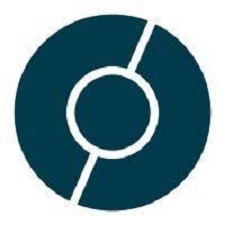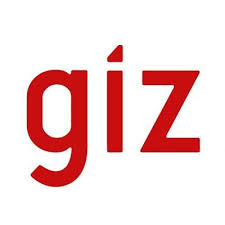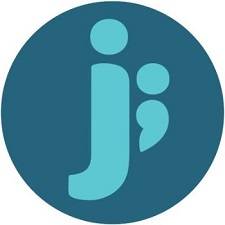Job Vacancy at The World Bank – ET Consultant (Sierra Leone)
Description
THE WORLD BANK GROUP
Do you want to build a career that is truly worthwhile? Working at the World Bank Group provides a unique opportunity for you to help our clients solve their greatest development challenges. The World Bank Group is one of the largest sources of funding and knowledge for developing countries; a unique global partnership of five institutions dedicated to ending extreme poverty and promoting shared prosperity. With 189 member countries and more than 120 offices worldwide, we work with public and private sector partners, investing in groundbreaking projects and using data, research, and technology to develop solutions to the most urgent global challenges. For more information, visit www.worldbank.org.
Western and Central Africa (AFW) Region
We need the best and brightest talent focused on Sub-Saharan African countries in order to harness the potential and innovation happening across the continent. Africa is a continent on the move, with a young population and a growing market of nearly 1.2bn people. We are committed to making the Africa regional teams into leading innovation hubs. Yet, these vast opportunities are tempered by persistent gaps in education, health, and skills, which have Africa only reaching forty percent of its estimated potential. Moreover, conflict, food insecurity, population growth, and the disruptive forces of climate change threaten to curtail or even reverse the progress that has been made over the past decades.
In West and Central Africa, the World Bank is a leading partner with a growing portfolio of 350 projects totaling more than $38 billion in areas such as agriculture, trade and transport, energy, education, health, water and sanitation- all to support job creation, gender equality, poverty reduction, and better lives. Across the continent, the World Bank’s program has nearly doubled over the last 10 years. By 2030, about 87% of the world’s extreme poor are projected to live in Sub-Saharan Africa, so this is where our mission to end extreme poverty and to promote shared prosperity will be achieved. Are you ready to make an impact? We are looking for dedicated professionals to join our innovative and diverse team to improve people’s lives and help countries build back better after COVID.
Western and Central Africa (AFW) Region: https://www.worldbank.org/en/region/afr/western-and-central-africa
The Human Development (HD) Practice Group (PG)
Human development is at the core of the World Bank’s strategy to improve people’s lives and support sustainable development. The Human Development research program spans education, health, social protection, and labor. Education Global Practice Education is a human right, a powerful driver of development and one of the strongest instruments for reducing poverty and improving health, gender equality, peace, and stability. It delivers large, consistent returns in terms of income and is the most important factor to ensure equality of opportunities. For more information: https://www.worldbank.org/en/topic/education
Education is central to achieving the WBG’s twin goals: it is a reliable route out of poverty through large and consistent returns to income for individuals and as a driver for economic growth. It is also a prime vehicle for promoting shared prosperity. The main challenge in the education sector is to achieve “learning for all and learning for life”- that is, to ensure that all children and young people acquire the knowledge and skills they need for their lives and livelihoods. In the past two decades, the developing world has made great advances in education, most notably in enrolling and keeping children in school and in approaching gender equality.
Despite these successes in expanding access to education, critical challenges remain: removing persistent educational barriers faced by the poorest people and those living in fragile and conflict-affected states, and improving the quality of education so that schooling leads to real learning. In recent years, the WBG, and the broader education development community, have shifted their focus to include learning outcomes. Traditional input-driven programs have shown that they do not always lead to improved learning outcomes, so that the WBG’s education strategy highlights the need for a more comprehensive ‘systems approach’ to education reform, investments, and service delivery.
This approach is about increasing accountability and targeting results, as a complement to providing inputs. It also requires strengthening the knowledge base on education, to highlight where systems are achieving results, where they are falling short, and what the most effective solutions are. These efforts are increasingly guided by the need to invest early; invest smartly; and invest for all. Through high-quality analytical work, collection of evidence, and practical know-how in these three areas, the WBG is helping its partner countries accelerate their progress in the education sector. The Education Global Practice is led by a Global Director, who has overall responsibility for the practice, together with Regional Directors who oversee the human development program in the regions working with ten Practice Managers.
HAWE3 Unit
The Education team in the Western and Central Africa Region is divided into two units, each covering three CMUs.HAWE3 covers the Nigeria, Cameroon, and Ghana CMUs, which includes nine countries. Clients range from low-income countries, among them several fragile and conflict-affected states, to a small but growing number of middle-income countries (MICs) but with weak human development indicators. Average annual per capita income varies widely and inequalities persist in most AFR countries, with most of the Region's population living in poverty.
In AFR, many countries have achieved considerable progress in access to basic education. But challenges persist, namely: improving the quality and relevance of education at all levels; expanding access to early childhood development (ECD) and post-basic education; developing emphasis on science, technology and innovation; and improving skills development. Efforts are needed in each of these areas to produce a quality workforce to sustain, innovate, and expand on the current economic growth in the region.
The Education GP team in the region works with client countries – at the regional, national, and sub-national levels – to address their unique and shared challenges. We do this by addressing low quality at all levels of education, increasing the efficiency and accountability of education services, modernizing the higher end of the formal education continuum, integrating science and technology more effectively, and aligning skills formation with the needs of a fast growing Region, including LICs. The Education GP aims to not only deliver high quality products but also to build capacity in client countries through collaborative interactions with country counterparts and other development partners. It seeks to bring the best possible knowledge to bear on the practical challenges facing client countries and at the same time places a high priority on knowledge generation, including through rigorous impact evaluations of education interventions.
Many of our operations and analytical products are based on approaches that
(i) assist countries in developing and implementing strategies for ensuring quality teaching and learning at all levels of education (pre-school, basic education, secondary education and tertiary education), and in addressing the issues that face these countries' disadvantaged population groups;
(ii) ensures that education systems respond to the needs of labor markets, with a focus on applied sciences, engineering and technology and strengthening the links between post-basic education systems and labor markets;
(iii) continue to stress the focus on results; builds capacity for monitoring and impact evaluation of reforms; fosters knowledge sharing;
(iv) promote innovative approaches, cross-sectoral linkages, and partnerships with the private sector and other development partners whenever relevant;
(v) develop and scale up successful strategies for regional collaboration to leverage economies of scale; and
(vi) work to strengthen governance, accountability, and transparency in the education sector.
The unit currently has a portfolio of regional and country projects and programs, analytical and technical assistance activities financed through IDA grants and credits, Trust Funds, and using investment and results-based financing. The portfolio spans the full spectrum of the education sector from early childhood development to higher education and skills development. The unit is committed to delivering high quality technical products to support education development in the Bank’s client countries, and to do so in a manner that builds capacity through collaborative interactions with country counterparts.
In Sierra Leone, the Bank has a growing program. Ongoing education operations in Sierra Leone include the:
(i) Free Education Project (US$50 million International Development Association [IDA] grant and multi-donor trust fund grant of US$16 million from DFID, EU and Irish Aid, and additional financing COVID-19 grant of US$6.85 million from Global Partnership for Education [GPE]). The project aims to enhance equitable access to education, improve learning outcomes and skills acquisition, and strengthen education system; and
(ii) Skills Development Project (US$20 million), which aims to be the platform to develop a demand-led skills development system by providing competitive grants to TVET institutions and private sectors. In addition, the World Bank is currently working with the Government on preparing new operations. The World Bank is also active in knowledge generation on key issues in the education sector in Sierra Leone and contributes relevant analysis and inputs to cross-sectoral reports and strategic documents.
The unit is seeking to an Education Economist/Specialist as an Extended Term Consultant (ETC), based in Freetown, Sierra Leone, to provide operational and analytical support to the Sierra Leone education portfolio and related activities, who
- has strong analytical skills;
- has some expertise in at least one education subsector;
- has strong communication skills and an understanding of political economy of reforms, enabling them to contribute effectively to policy dialogue; and
- is interested in the practical aspects of World Bank operations or (for internal candidates) has experience in World Bank-funded/supported operations.
The selected candidate will be based in Freetown, Sierra Leone, and report to the Education Practice Manager for HAWE3. The ETC will collaborate closely with the Sierra Leone education team, which has members based both in Freetown and Washington DC. This is a 12-months extended term staff position. The term of employment may be renewed for an additional 12 months based on performance.
Duties And Accountabilities
ET Consultant will have the following key responsibilities:
- Operations: In consultation with the TTLs, contribute to the design, preparation, implementation, and evaluation of lending operations, both in education and multi-sectoral. Providing day-to-day operational support and advise the government on technical and operational aspects of project implementation for ongoing projects. Support mission preparation and contribute to mission objectives, including inputs to mission aides-memoire and implementation status reports (ISRs).
- Analytical Work and Non-Lending Services: Participate in analytical work and provide high quality customized analytical and advisory services linked to country circumstances (including relevant lessons from international experience) on wide range of issues and policies related to education. Skillfully manipulate large datasets, such as school census and national learning assessment data, summarizing findings clearly and drawing out policy recommendations. Contribute to activities such as impact evaluations, economic analysis of education operations, public expenditure reviews, and other education analytical work. Provide education sector input to regular Bank products and outputs (e.g., HD-wide analytical tasks, CMU tasks).Liaise with HD staff on integrated HD inputs and activities.
- Ad hoc requests and briefings: Respond to ad-hoc information requests on education from internal and external parties. Draft briefings for management on education sector in general and specific topics as required.
Selection Criteria
- A minimum of a Master’s Degree (preferably PhD) in economics, education (economics of education, education policy, etc.), public policy, or a related field;
- A minimum of 5 years of experience in the education sector;
- Strong analytical and technical skills, including an understanding of the core education data sets, indicators, tools for analysis of these data, and the use of evidence for education policy;
- Strong client orientation and proven ability to work with government agencies, and with partner organizations;
- Excellent interpersonal skills, with a proven ability to work in a team and intercultural environment with minimal supervision;
- High levels of energy, initiative and flexibility in quickly adjusting to changing work program requirements. Ability to juggle numerous competing demands and priorities, respond quickly to internal and external client requests, and set priorities for self and others;
- Relevant experience with policies and interventions in the education sector, familiarity with World Bank's operations and business processes will be a plus;
- Excellent communication (oral and written) skills to convey complex technical ideas to a non-specialist audience, and lead substantive policy dialogue with clients and stakeholders;
- Fluency in written and spoken English; and willingness to travel, as required by the different tasks.
Key Competencies
- Integrative Skills : Demonstrates strong integrative thinking and ability to support project teams in developing an integrated point of view around development challenges;
- Policy Dialogue Skills : Possesses political judgment, diplomatic acumen, and negotiating skills; applies cross-country development knowledge to discussions with clients and development partners; anticipates needs and requests in the field and develops/offers relevant tools to clients;
- Knowledge and Experience in Development Arena : Understands policy making process and the role of own sector of expertise in that process; finds relevant information/data and examines similar policy questions in multiple regions;
- Client Orientation : Takes personal responsibility and accountability for timely response to client queries, requests or needs, working to remove obstacles that may impede execution or overall success;
- Drive for Results : Takes personal ownership and accountability to meet deadlines and achieve agreed-upon results, and has the personal organization skills to do so;
- Teamwork : Collaborates with other team members and contributes productively to the team’s work and output, demonstrating respect for different points of view;
- Knowledge, Learning, and Communication : Actively seeks knowledge needed to complete assignments and shares knowledge with others, communicating and presenting information in a clear and organized manner; and
- Education Sector Knowledge and Experience : Possesses strong analytical and technical skills, including an understanding of the core education data sets, indicators, tools for analysis of these data, and the use of evidence for education policy.
WBG Competencies
In addition to the selection criteria, the successful candidate is expected to demonstrate WBG competencies. For information about WBG Core Competencies, please visit: https://bit.ly/2kbIA7O.
World Bank Group Core Competencies
We are proud to be an equal opportunity and inclusive employer with a dedicated and committed workforce, and do not discriminate based on gender, gender identity, religion, race, ethnicity, sexual orientation, or disability.
Learn more about working at the World Bank and IFC , including our values and inspiring stories.
Note: The selected candidate will be offered a one-year appointment, renewable for an additional one year, at the discretion of the World Bank Group, and subject to a lifetime maximum ET Appointment of two years. If an ET appointment ends before a full year, it is considered as a full year toward the lifetime maximum. Former and current ET staff who have completed all or any portion of their second-year ET appointment are not eligible for future ET appointments.
How to Apply
Qualified and interested individuals should click on the button below to apply.
Disclaimer: Careerical eConsult posts job listings for the convenience of job seekers. We do not endorse or recommend employers, and a posting does not constitute an endorsement or recommendation. Careerical eConsult explicitly makes no representations or guarantees about positions listed on our website. Careerical eConsult is not responsible for safety, wages, working conditions, or other aspects of employment. It is the responsibility of applicants to research the integrity of the organizations to which they are applying. We advise you to use caution and common sense when applying for any position with an organization or private party.





